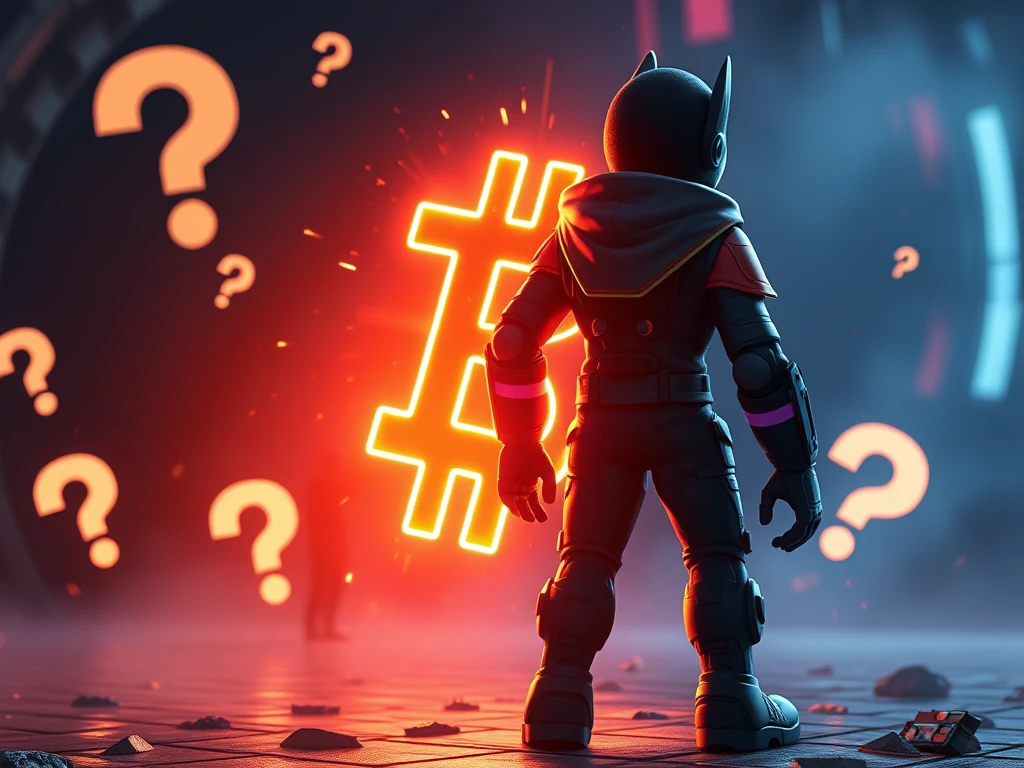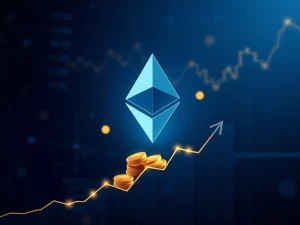Shocking Revelation: Blade of God X ‘Abandons’ Web3 Promises, Ex-Exec Claims

In a dramatic turn of events shaking the foundations of web3 games, former Chief Marketing Officer of Blade of God X (BOGX), Amber Bella, has dropped a bombshell accusation. Bella claims the highly anticipated action RPG, despite securing funding from the crypto community and initially championing blockchain integration, has allegedly “completely abandoned” its Web3 roadmap. This explosive claim has ignited a firestorm of debate and concern within the crypto games and NFT games space, raising serious questions about project accountability and the future of blockchain gaming integrations.
Did Blade of God X Really Abandon Web3? Unpacking the Allegations
According to Bella’s X post on April 1st, the shift away from Web3 was not a gradual pivot, but a sudden and decisive abandonment. She alleges that the team dedicated to developing blockchain games features was not only sidelined but also left unpaid. This paints a picture of a project that seemingly leveraged the hype and financial backing of the Web3 community only to then discard its core principles.
Bella stated:
“Web3 was completely abandoned, and my Web3 team’s salaries went from delayed payments to no payments at all.”
This statement immediately raises several critical questions:
- What were the initial Web3 promises of Blade of God X? BOGX, developed by Void Labs and backed by OKX Ventures, initially marketed itself as a game that would “merge advanced AI agents with blockchain technology.” This suggests a deep integration of Web3 elements, likely including NFTs and potentially cryptocurrency rewards or in-game economies.
- Why the alleged abandonment? Bella’s claims don’t explicitly state the reasons for this alleged shift. However, the accusation of prioritizing the Web2 team and diverting resources suggests a potential strategic change, possibly driven by concerns about the complexity or profitability of Web3 integration, or perhaps even a shift in leadership priorities.
- What about the community and investors? The most concerning aspect is the alleged disregard for the Web3 community and NFT holders. Bella claims that when she proposed liquidating Web3 assets and refunding NFT buyers and in-game purchases made during testing, she was blocked by the game’s founder, Tnise Liu Yang.
The Missing Refunds and Blocked Communications: A Deeper Dive into the Controversy
Bella’s accusations go beyond just project abandonment. She claims that her attempts to address the concerns of the NFT games community and propose responsible solutions were met with silence and obstruction. This alleged blocking of communication channels by the founder is a serious escalation, suggesting a deliberate attempt to avoid accountability.
In her X thread, Bella detailed her attempts to find a resolution:
“When I requested that Tnise refund all sold NFTs and properly address the Web3 community, including returning the in-game purchases made by Web3 users during the third test, I discovered I had been blocked from all personal communication channels without any advance notice.”
This alleged action raises red flags regarding transparency and ethical conduct within the gamefi space. When projects pivot or face challenges, open communication and community engagement are paramount. Blocking communication, especially when financial reimbursements are at stake, can severely damage trust and reputation.
Accusations of Internal Misconduct: Web2 Team and Player Prizes
Adding another layer of complexity to this unfolding drama, Bella also alleges misconduct within the Web2 team. She claims that while the Web3 team was focused on enhancing player rewards and benefits within the blockchain games framework, they uncovered a disturbing practice by the Web2 team.
According to Bella, the Web2 team allegedly used their own accounts to complete in-game tasks and claim cash prizes that were intended for genuine players. This accusation, if true, points to a serious breach of trust and ethical gameplay practices.
Bella described the discovery:
“They concealed this from the Web3 team entirely and initially denied it when confronted. Only when we presented evidence showing that the accounts were linked to their own wallets did they finally remove these accounts,”
While the Web2 team reportedly removed these accounts upon being presented with evidence, the initial denial and concealment raise questions about the extent of this practice and the overall internal culture within the BOGX development team.
The Silence from Blade of God X: Awaiting a Response
As of publication, Crypto News Insights’ request for comment from Blade of God X has gone unanswered. This silence further fuels speculation and concern within the web3 games community. A public response from BOGX is crucial to address these serious allegations and clarify the project’s current direction regarding Web3 integration and community commitments.
The lack of response leaves several unanswered questions:
- Will Blade of God X address these allegations publicly? A formal statement is necessary to either refute or acknowledge Bella’s claims and outline the project’s perspective.
- What is the future of Web3 integration in Blade of God X? Is Web3 completely abandoned, or is there a revised roadmap? Clarity on this is vital for both existing and potential players and investors.
- Will NFT holders and in-game purchasers be compensated? Addressing the financial concerns of the Web3 community is essential for regaining trust and demonstrating accountability.
The Broader Implications for Web3 Gaming and GameFi
This situation with Blade of God X, whether the allegations are fully substantiated or not, serves as a stark reminder of the challenges and risks inherent in the burgeoning gamefi and crypto games space. It highlights the importance of:
- Due Diligence: Investors and players need to conduct thorough research before engaging with any Web3 gaming project. Understanding the team, roadmap, and community sentiment is crucial.
- Transparency and Communication: Projects must prioritize open and honest communication with their communities, especially during times of change or challenge.
- Accountability and Ethics: Developers must uphold their promises to the community and act ethically in managing funds and community assets.
- Regulation and Oversight: As the Web3 gaming space matures, there may be a need for greater regulatory oversight to protect users and ensure fair practices.
Conclusion: A Wake-Up Call for Web3 Games?
The allegations surrounding Blade of God X and its alleged abandonment of Web3 are a serious matter for the entire web3 games ecosystem. This situation underscores the volatile and often unpredictable nature of early-stage crypto projects. While Web3 gaming holds immense promise, it also demands a higher level of scrutiny, transparency, and accountability from developers and projects. The industry must learn from such controversies to build a more robust, trustworthy, and sustainable future for blockchain games and the broader metaverse.









